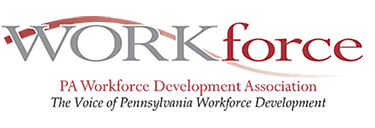From the Office of the Governor
PA Department of Human Services (DHS) Secretary Teresa Miller today announced a more than $1 million investment to strengthen existing employment and training programs across the commonwealth by supporting solutions that address barriers to employment and help program participants as they find and maintain meaningful, family-sustaining jobs.
The grants were awarded to seven employment and training programs across the commonwealth and address barriers identified through feedback from past program participants and staff. The program improvements will expand services to more than 1,100 individuals, helping them overcome barriers to sustaining employment such as transportation and child care.
Funding for these projects comes from the Temporary Assistance for Needy Families (TANF) program. TANF is a federally funded program that assists families with children when parents or other responsible relatives struggle to make ends meet and provide for the family’s basic needs. DHS is dispersing a total of $1,028,757 for the innovation grants that will provide greater support to people using locally run Employment, Advancement, and Retention Network (EARN) programs.
“Finding a job you enjoy and can excel at can give a sense of purpose and accomplishment, but many people face barriers to employment or lack the skills or training needed to succeed,” said Secretary Miller. “The Wolf Administration is committed to removing these barriers and making a successful future achievable. These innovative programs will strengthen existing employment and training programs and lead to better outcomes for Pennsylvanians using them.”
The grant recipients and the programs the funding supports include:
* Montgomery County Workforce Investment Act (WIA) – Family Advocate Program: A Family Advocate will be hired to meet with each newly enrolled client and assess the need for continued onsite services. The client advocate will facilitate weekly peer group discussions as requested by clients on topics such as stress management, anger management, and other client-guided topics to help build peer-to-peer networking relationships.
* Delaware County WIA – Multi-Generational Plan Project: Funds will be used to establish two cohorts, each running 8-12 weeks at a local technical or high school to provide knowledge, networking opportunities, and child care for TANF recipients. During the weeks that cohorts meet, clients will have the opportunity to learn customer service within business, financial, and hospitality occupations and skills for jobs in the health care field.
* Westmoreland-Fayette WIA – Substance Use/Mental Health Remediation: Behavioral health services will be provided to entire families to address the effect of mental health and substance use disorder. The project will have a multi-generational approach as helping the family address barriers will also help the enrolled EARN client focus on the services offered. While receiving the behavioral health services, the enrollees will work towards receiving credentials for in-demand jobs and participate in family engagement events that will promote education and health.
* Southwest Corner WIA (Washington, Greene, and Beaver Counties) – Transportation Barrier Remediation: Transportation barriers will be removed from the beginning of the client’s enrollment in the program through employment. This includes TANF eligibility, Transitional Cash Assistance period, and the post-TANF eligibility retention period. The goal of the project is to enable a client to become self-sufficient by addressing transportation barriers that are not currently addressed due to the closure of TANF benefits after employment. The project funds will be utilized to assist with car insurance payments, driver’s education classes pre-employment, ride-sharing services (where available) and to help clients to maintain a vehicle by assisting with vehicle-related expenses and services such as inspection, maintenance, and registration.
* Lehigh Valley WIA – St. Luke’s Sacred Heart American Job Center: Funds will be used to provide child care reimbursement as jobseekers gain employment and transition off of cash assistance, alleviate transportation issues for job searchers, assist with expungements, hire a recruiter to provide services for individuals involved with the justice system, bridge skills gaps, develop job-ready candidates, and to triage mental health and substance use in clients when applicable.
* Northwest WIA (Erie, Crawford, Warren, Venango, Forest, and Clarion Counties) – Transportation Barrier Remediation: Transportation barriers will be addressed to improve job retention for St. Benedict Education Center EARN participants. Once a participant obtains a minimum 20-hour a week job, participants needing reliable transportation will become eligible for transportation assistance to help maintain employment. Transportation assistance will include assistance with costs to have a license reinstated, car repairs after TANF has closed, and payment for transportation services to help clients maintain employment. Participants will use a single point of contact to help coordinate transportation needs. By eliminating transportation barriers, participants will improve their chances of retaining a job by eliminating expenses and issues around getting to and from work.
* Lancaster County WIA – EARN Experience Zone: Individualized career training support will be strengthened by improving initial assessments, providing one-on-one career navigation assistance, hosting industry-specific trainings and employer visits, and forming mentoring relationships both during and after the program. Funds will also help establish an in-house care closet to provide necessary supplies to needy families enrolled in programs.
As the department moves forward, the grants’ successes as well as any challenges will be tracked so that future endeavors related to participant barrier remediation are both effective and fiscally responsible.
“These projects allow our employment and training partners to provide greater support to the people they serve and will help many people as they work towards a better life for themselves and their families,” Miller said. “I am excited to see the progress that comes out of these programs, and I look forward to collaborating on future innovative projects to serve more Pennsylvanians.”
